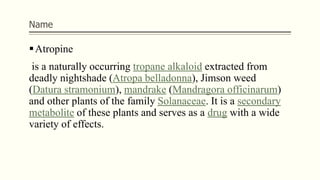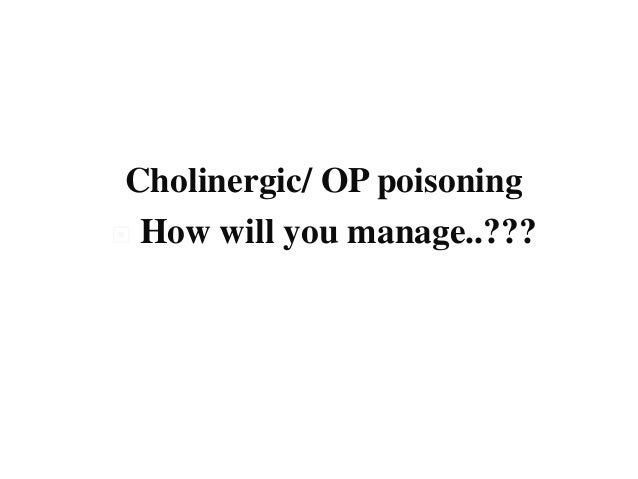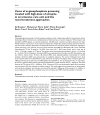
OPs cause damage to multiple organs through cholinergic and non-cholinergic effects ( 5). In China, AOPP cases comprise nearly 50% of all poisoning cases, with case fatality rates of 3–40%, comprising over 80% of all poisoning deaths ( 3, 4).

Acute organophosphorus pesticide poisoning (AOPP) is a major life-threatening toxic disease in the rural areas of developing countries ( 1, 2).

Some organophosphorus pesticides (OPs) are extremely poisonous and cause rapid intoxication-induced death with minimal ingestion or exposure. This study provides useful guidelines for the treatment of similar cases in the future. Application of atropine and pralidoxine in a timely manner after cardiac arrest following AOPP is the key to successful treatment. Cardiac arrest can occur in patients with severe AOPP for whom antidote administration was insufficient or not timely. This, along with their death, might have been related to their prognosis. The last two patients had severe pancreatic injuries and disseminated intravascular coagulation. Four patients recovered and were discharged from the hospital, one died in our department, and one was transferred to a local hospital and died there 2 h later. Five patients had not undergone hemoperfusion therapy before cardiac arrest, and all six were treated with atropine during cardiopulmonary resuscitation and subsequent pralidoxine. This study included six cases of patients with AOPP in addition to cardiac arrest in four cases, cardiac arrest occurred <12 h after ingestion, and in two, cardiac arrest occurred more than 48 h after ingestion. We conducted a descriptive analysis of the clinical manifestations, rescue strategies, and prognosis of patients with AOPP who had experienced cardiac arrest and successful cardiopulmonary resuscitation. This retrospective study was conducted in our department in the years 2018–2021. Therefore, this study aimed to explore the prognostic factors and effective treatments of AOPP-related cardiac arrest.

© 2015 The British Pharmacological Society.Acute organophosphorus pesticide poisoning (AOPP) with cardiac arrest has an extremely high mortality rate, and corresponding therapeutic strategies have rarely been reported. It is possible that the only effective way to reduce deaths from OP insecticide poisoning will be a steady reduction in their agricultural use worldwide. In addition, the toxicity of the varied solvents and surfactants formulated with the OP active ingredients complicates both treatment and studies. However, the large number of chemically diverse OP insecticides, the varied poisoning they produce and their varied response to treatment might ultimately make it difficult to determine definitively whether these antidotes are truly effective. Hopefully, one or more of these affordable and already licensed antidotes will find their place in routine clinical care. Novel antidotes such as nicotinic receptor antagonists, beta-adrenergic agonists and lipid emulsions are being studied in large animal models and in pilot clinical trials.

Supplemental antidotes, such as magnesium, clonidine and sodium bicarbonate, have all been proposed and studied in small trials without production of definitive answers. However, we are still unsure about which patients are most likely to benefit from the use of oximes. Clinical research in South Asia has shown how improved regimens of atropine can prevent deaths. We are still using the same two antidotes - atropine and oximes - that first came into clinical use in the late 1950s. Despite being a major clinical and public health problem across the developing world, responsible for at least 5 million deaths over the last three decades, the clinical care of patients with organophosphorus (OP) insecticide poisoning has little improved over the last six decades.


 0 kommentar(er)
0 kommentar(er)
